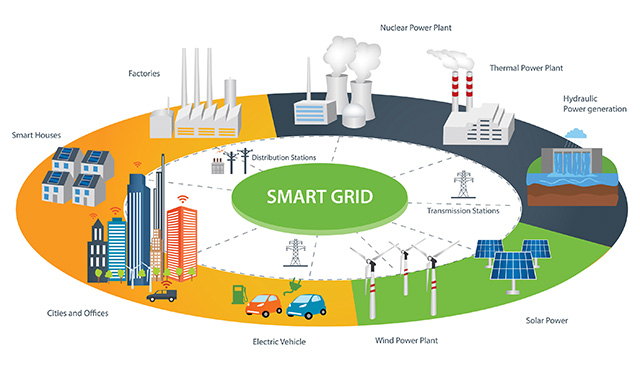Electricity keeps modern business moving from powering computers and machinery to keeping offices well-lit and climate-controlled. Yet, for many business owners, the electricity bill is a mysterious expense, fluctuating from month to month with little explanation. The reality is that business electricity rates can make a significant difference in profitability, and understanding how they work is key to controlling costs.
Whether you operate a small retail store, a bustling restaurant, or a large manufacturing facility, the energy market affects you. And if you’re running your business in Texas, where the power market is deregulated, the opportunity to shop for the best rates can lead to real financial advantages if you know what to look for.

What Are Business Electricity Rates?
At their core, business electricity rates refer to the price per kilowatt-hour (kWh) that a company pays for its energy consumption. However, the term goes far beyond a simple number on a bill. These rates are influenced by multiple factors such as market demand, contract terms, supplier competition, and even the time of year.
Commercial electricity is generally priced differently from residential power. Businesses tend to consume more energy, often during peak hours, and utilities or electricity providers structure rates accordingly. For example, a manufacturing plant that operates heavy machinery will have a different pricing structure than a small coffee shop.
The Texas Advantage: A Deregulated Electricity Market
Texas is unique in the U.S. energy landscape. Thanks to deregulation, most Texas businesses can choose their electricity provider instead of being locked into one utility company. This competitive environment allows companies to compare offers and select plans that best fit their usage patterns and budget goals.
However, deregulation also means navigating a marketplace filled with numerous providers, contract options, and rate structures. That’s where an energy broker like Texas Electric Broker can provide value. Brokers act as independent advisors, helping business owners analyze their energy needs, compare providers, and negotiate the most cost-effective deal.
Fixed vs. Variable Rates: What’s Best for Your Business?
When exploring business electricity rates, you’ll likely come across two primary pricing models: fixed-rate plans and variable-rate plans.
- Fixed-Rate Plans:
These lock in a set price per kWh for the duration of your contract, typically 6, 12, 24, or even 36 months. The advantage is predictability your rate won’t change even if market prices rise. This stability can make budgeting easier for businesses with consistent energy use. - Variable-Rate Plans:
In contrast, variable-rate plans fluctuate based on market conditions. During times of high demand, such as summer months, rates may spike. However, when energy prices drop, your business could benefit from lower bills. This type of plan can be advantageous for businesses willing to take on some risk for potential savings.
Choosing between these two depends on your risk tolerance, cash flow stability, and energy consumption patterns. Many Texas businesses prefer fixed-rate contracts because they protect against price volatility, but variable rates can sometimes offer short-term opportunities for savings.
The Hidden Factors Behind Business Electricity Rates
Electricity pricing isn’t solely determined by energy usage. Several underlying factors can influence the final number you see on your invoice:
- Market Demand and Fuel Costs:
Energy generation relies on natural gas, coal, and renewables. When fuel prices rise, electricity rates follow suit. - Location and Grid Constraints:
Depending on where your business operates, transmission and distribution charges can vary. Some regions have more congested grids, leading to higher delivery fees. - Contract Length and Terms:
Longer contracts often come with slightly higher rates due to market uncertainty, but they can protect you from sudden price hikes. - Creditworthiness:
Believe it or not, your business’s credit score can affect your rate. Energy providers may charge higher prices or deposits to companies they consider higher risk. - Time-of-Use Pricing:
Some providers offer rates that depend on when you consume energy. Using electricity during off-peak hours can lead to substantial savings.
Why Partnering With an Energy Broker Makes Sense
Most business owners don’t have the time or the expertise to monitor energy markets and negotiate with multiple suppliers. That’s where energy brokers step in.
Companies like Texas Electric Broker specialize in understanding the complexities of the energy market. They analyze your business’s energy profile, compare multiple offers, and secure competitive rates on your behalf. Because brokers work with various suppliers, they can identify cost-saving opportunities that might not be visible to the average consumer.
More importantly, they act as advocates. Their role doesn’t end when you sign a contract; they continue to monitor market trends, alert you to renewal opportunities, and ensure your business remains on the most advantageous plan.
Practical Tips to Lower Your Business Electricity Costs
While finding a competitive rate is a great start, there are additional strategies that can further reduce your energy expenses:
- Conduct an Energy Audit:
Identify inefficiencies in lighting, HVAC systems, and machinery. Even small adjustments like switching to LED lighting can yield noticeable savings. - Leverage Smart Technology:
Smart thermostats and energy management systems can optimize usage and automatically reduce consumption during low-demand periods. - Monitor Your Energy Use:
Track monthly usage patterns to understand when your business consumes the most power. This data can inform future contract decisions. - Negotiate with Confidence:
Don’t settle for the first rate offered. Compare multiple providers and don’t be afraid to ask for customized pricing especially if your business has a high or consistent load. - Plan Ahead for Renewals:
Avoid lapses that default you to “holdover” or “month-to-month” rates, which are typically higher. Start shopping for new contracts 60–90 days before your current agreement expires.
The Future of Business Electricity Rates
As Texas continues to invest in renewable energy and expand grid capacity, the state’s electricity market remains one of the most dynamic in the nation. Solar and wind power now contribute a growing share of the state’s energy mix, which may bring more stable long-term pricing for businesses.
At the same time, innovations in battery storage and smart grid technologies are helping to reduce demand surges and improve reliability. For forward-thinking business owners, this presents opportunities to lock in favorable rates or participate in green energy programs that align with sustainability goals.
Final Thoughts
Electricity is more than just a utility it’s a strategic cost that can influence your bottom line. By understanding how business electricity rates work and taking proactive steps to secure competitive pricing, companies can protect themselves from market volatility and position for sustainable growth.
In Texas’s deregulated market, knowledge truly is power. Partnering with experts like Texas Electric Broker can help you navigate complex rate structures, secure better deals, and keep your business running efficiently without overspending on energy.









